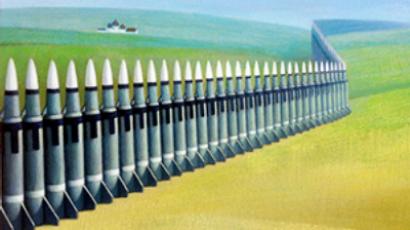Obama addresses Congress in last attempt to push START ratification

As Republicans try to stall the process, Barack Obama has addressed the US Senate as he seeks additional support from Congress to ratify the nuclear arms reduction treaty with Russia.
The new START treaty with Russia is “absolutely essential to the US national security”, he told Congressional leaders on Tuesday.Obama said Congress had 18 hearings on the treaty in the past seven months and the document gained support of representatives of both parties, as well as current and former presidential national security advisors.Democratic Senator John Kerry earlier urged the Senate to ratify the latest Strategic Arms Reduction Treaty before the newly elected Congress is able to block it next year.“The new START is quite simply a common sense agreement to control the world’s most dangerous weapons and enhance stability between two countries, two countries that posses over 90 percent of them,” said the senator, who is the chairman of the Senate Foreign Relations Committee.Kerry believes that by pursuing nuclear disarmament, Russia and the US will make a proper statement to countries like Iran and North Korea, which are working to possess nuclear weapons.“And what a completely opposite irresponsible decision it would be if the US Senate just got bogged down in politics and walked away from this moment, unwilling to make that kind of decision, that offers the kind of leadership that the world and certainly the American people expect us to make,” he concluded.The treaty, signed in Prague in April by the Russian and American presidents, would see each nation's nuclear arsenal cut by about 30 percent.The agreement tops Obama's foreign policy agenda, but needs to be ratified by the US Senate.Senate Republicans are trying to stall the process, saying they need to be sure that the US nuclear arsenal will be modernized and that the treaty will not hamper US missile defense efforts.
Robert Gard, a retired US general and former assistant to the US Secretary of Defense, now a senior fellow at the Center for Arms Control and Non-Proliferation, says the Republicans, who are the minority in the Senate now, want to prevent Obama’s foreign policy victory in order to prevent the re-election of the American president.“They are reluctant to support his initiatives and to give him what might appear to be a foreign policy success,” he said, pointing out that if delayed till next year the process of ratification will have to begin all over.“This is in the mutual interests of both the U.S. and Russia and the administration wants to get it passed before the end of the year, rather than having it extended to next year with a new Congress,” Robert Gard concluded.
Investigative journalist Wayne Madsen says some Republicans are in favor of signing the treaty, but that President Obama still faces a daunting task to persuade the rest of them to do so.“If we don’t pass this treaty in this Congress, it is going to be thrown into a Senate where the Republicans are going to have an increased majority. Maybe we could see passage, but this is going to take some statesmanship, not only on the part of president Obama, but on the part of the Democratic and Republican leaders in the Senate. It’s really incumbent on President Obama to use his bully pulpit of being the president of the United States to really force this issue and tell these recalcitrant Republicans why this is important,” he said.
Kingston Reif, director at the US Center for Arms Control and Nuclear Non-Proliferation, stresses that the treaty has a good chance of being ratified before the end of the year.
Tom Collina, the Research Director at the U.S. Arms Control Association, is cautiously optimistic about the new START treaty being ratified by the end of the year, because it is the second highest priority for Barack Obama, and the American military strongly supports the new treaty, too.“If the treaty is not ratified by the end of this year, it goes into the next Congress, and if that happens – hearings have to be held again and a new vote has to happen in the Senate Foreign Relations Committee – it could take months if not years at that point to have a vote on the treaty again,” Collina said – something neither Republicans nor Democrats from the U.S. military and national security communities could wait for again.













